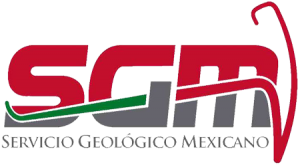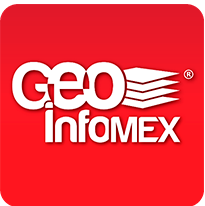Less than a week before Pan American Silver Corp. shareholders vote on a US$1.1 billion acquisition of Tahoe Resources Inc., three non-profit firms have filed complaints with the British Columbia Securities Commission accusing the companies of hiding key risks.
The complaints say the companies are overly optimistic in their timeline for the reopening of Tahoe’s flagship Escobal mine in Guatemala and failed to disclose all conflicts with the local community around that mine.
Shin Imai, a director of the Justice and Corporate Accountability Project at Osgoode Hall Law School, who drafted the complaints and has a track record of accurately predicting when conflict will flare up at Escobal, said the case ties into a broader effort to improve mining companies’ disclosures about their community relations.
“This Tahoe case is just a classic example that shows that if you don’t have a social licence and you don’t disclose that, then investors get screwed,” said Imai.
He said his clients in the case — the Maritimes-Guatemala-based Breaking the Silence Network, Washington, D.C.-based Earthworks, and Ottawa-based MiningWatch Canada sent employees to visit the Escobal site, or live in Guatemala and thus understand the state of affairs on the ground at the mine.
In May 2017, Imai filed his first complaint with the BCSC asking for an investigation of Tahoe — as he is doing again now — for failing to disclose its conflicts with the local Xinka community near the Escobal mine. Two months after that initial complaint was filed, in July 2017, a Guatemalan court ordered the mine closed because of a lack of consultation with the local Xinka community.
That court decision was upheld in September by Guatemala’s Constitutional Court, which Imai wrote in his complaint also nullified all of Tahoe’s exploratory licenses around the mine, ordered the legislature to increase royalties from mines and ordered consultation with the local Xinka community.
In a statement, Pan American said it believed the issues relating to the Escobal mine have been well-documented in its own filings and past filings by Tahoe, and also that it believes consulting Indigneous communities is important.
“We look forward to peacefully engaging with these stakeholders in good faith and to the opportunity to address any concerns,” the statement read in part. “We have been clear that this process will take time and we have never set a timeline for the restart of the Escobal mine.”
The Escobal mine is a key asset in the Tahoe acquisition. Prior to its closure, it had produced 20 million ounces of silver per year; and Pan American is describing it to shareholders as “one of the world’s most attractive silver mines.”
“This is a very long term asset (with) big exploration potential upside,” Michael Steinmann, chief executive of Vancouver-based Pan American told the Financial Post on Nov. 26 when the acquisition was announced.
Imai’s letter states that Tahoe’s expected re-opening of the mine by December 2019 is not likely because the Xinka Parliament has filed two new court proceedings since the September court order.
On Nov. 15, it accused Tahoe of failing to consult its community; and Guatemala’s Supreme Court of Justice found the mining company had not fulfilled phase 1 of the process — even though it had told shareholders that the first part of the consultations were “well-advanced,” according to Imai’s 12-page complaint to the BCSC.
On Nov. 19, the Xinka Parliament filed a second court proceeding to prohibit Tahoe from seeking to bring non-legitimate representatives of its community to a mediation in Rome, Italy.
“Tahoe has started on the wrong foot and possibly irrevocably poisoned relationships,” Imai wrote.
But Steinmann has said his company is committed to working with the local communities around the mines where it operates.
Imai said his main goal is to prod the BCSC to raise its standards when it comes to mining companies’ disclosures around “social licence” risks.
Since May 2017, Tahoe’s stock on the New York Stock Exchange has dropped from around US$9 to under US$4, and was trading at US$3.64 on Wednesday morning.
Vancouver-based Pan American’s US$1.1 billion cash and share deal values Tahoe shares at US$3.40. Imai noted that the price is far below the company’s peak share price, around US$27 in August 2014.
“We’re trying to build a record and make the case that disclosure of social record is important and affects investors,” said Imai.
The disclosures would have a trickle down effect, he said, in that investors would stay away from companies that lack a social license and mining executives would operate with more consideration for the communities near their mines.
Pan American shareholders vote on the buyout of Tahoe on Jan. 8 at a special meeting. Its stock was trading at $19.95, up from around $18.70 prior to the merger announcement.
• Email: [email protected] | Twitter:





















